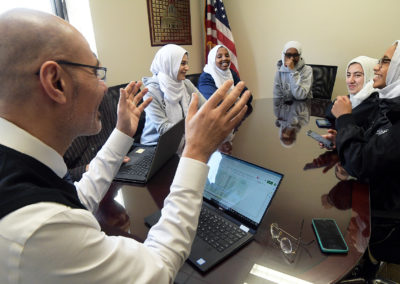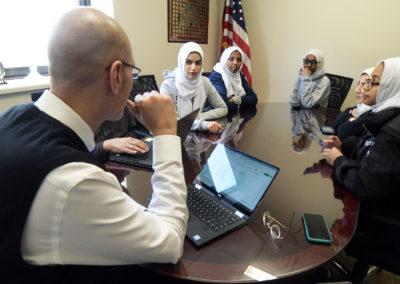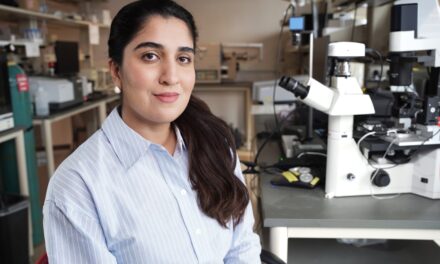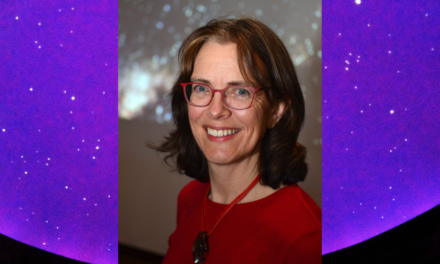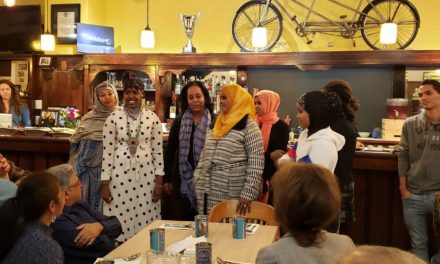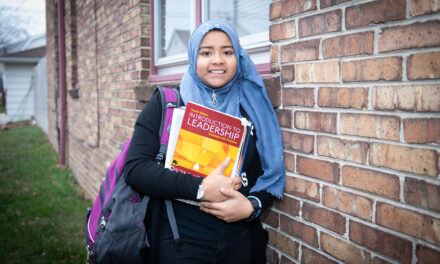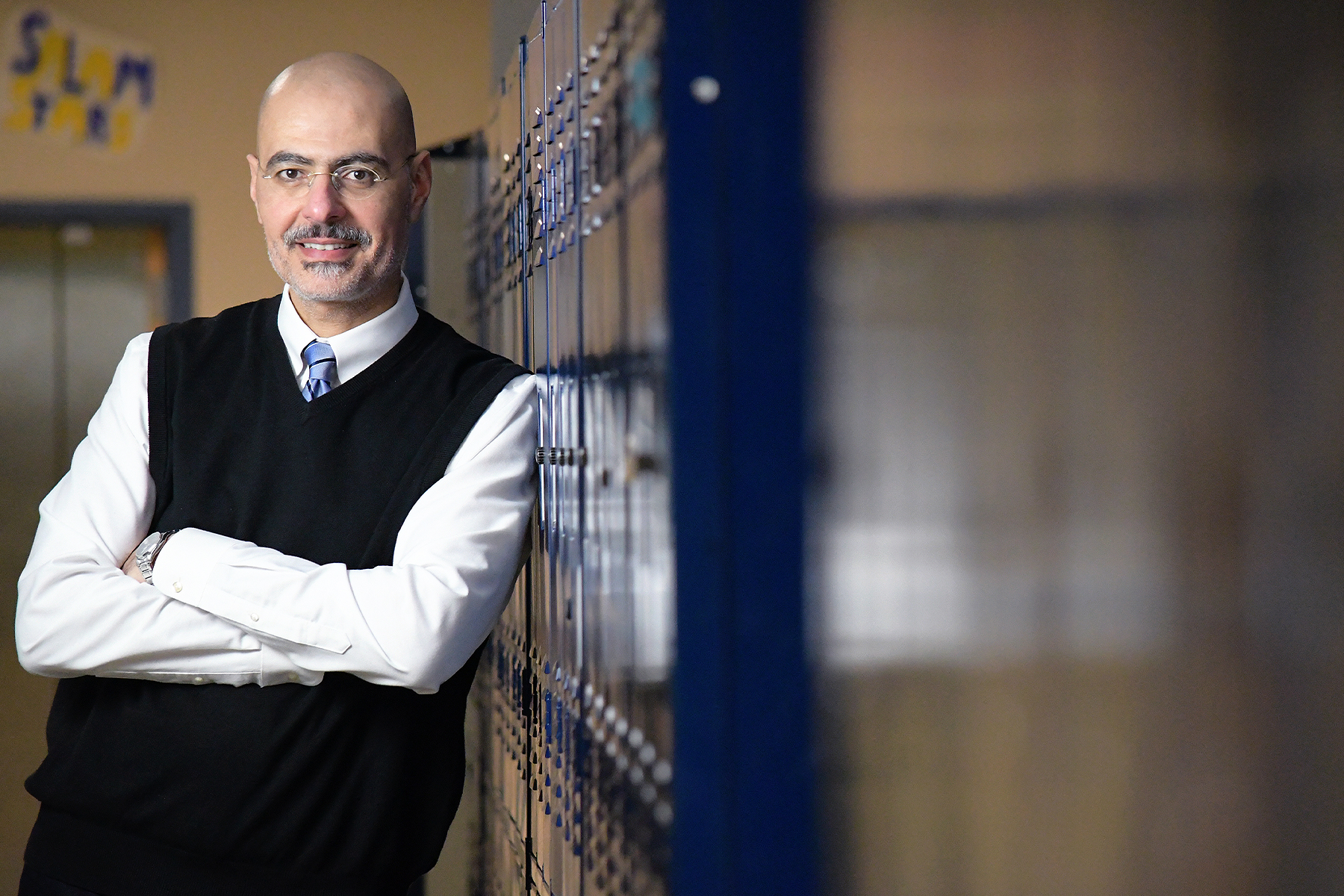
With 835 students, Salam School is one of the largest Islamic schools in the country. Lead by their highly capable principal, Wanis Shalaby, Salam School has created a nurturing environment that encourages academic excellence, pride in one’s faith and a safe space to be Muslim.
Wanis Shalaby began his career as a teacher, editor and translator before becoming a school principal. With two Masters degrees, Shalaby was hired by Salam School in July of 2007. Under his leadership, Salam High School opened its doors.
Q&A with Wanis Shalaby
Wisconsin Muslim Journal: How would you describe Salam School?
Wanis Shalaby: Salam School of Milwaukee is an Islamic, private school that operates under the auspices of the Islamic Society of Milwaukee (ISM). Salam School is one of the largest Islamic Schools in the nation (835 students PK—12). Salam school has been serving its community for almost three decades. In 2008, Salam High School opened its doors for ninth and tenth grades students. This year, the school is graduating its ninth High school class. Salam School has been growing in leaps and bounds, while enjoying the support and dedication of its constituents.
Wisconsin Muslim Journal: What makes Salam School unique compared to other schools?
Wanis Shalaby: Salam school is well known for its homelike atmosphere. Faculty members and students share a strong sense of family. Even those students who initially were not fond of joining Salam School are the ones who miss it most when they leave it. The school is more of a community forum and one clearly witnesses that in the substantial community attendance of Salam School’s in-school and after-school events. Most of Salam School students and teachers see one another outside the school as much as inside the school. The school’s communal sense is indescribably all-pervasive.
Wisconsin Muslim Journal: How do the Salam School teachers support their students educational and professional opportunities?
Wanis Shalaby: Salam School teachers regard their students as their children or younger siblings. One ought not be surprised when s/he knows that Salam School has teachers on staff who are biological fathers, mothers and sisters of students in the school. The school places students according to the varying levels of their academic abilities. It also scaffolds students’ success by providing adequate resources, constant assessments, and different outlets for their talents to be sharpened and venues for their needs to be met. The school’s booming athletic, art, drama and tutoring programs attest to that.
Wisconsin Muslim Journal: How does faith and identity play a role in the curriculum?
Wanis Shalaby: Being an Islamic school, Salam School is invested in educating the whole child. The school aims to create God-conscious, academically-excelling and well-rounded American Muslims. This is clearly manifested in the school’s mission statement, which serves as a continuous alignment for all its practices: Salam School is an Islamic educational institution adhering to the tenets of the Qur’an and Sunnah, truly believing that Allah is the God, the one and only (Qu’ran112.1). There is no God but Allah…. the Subsisting and Eternal (Qur’an, 2.255). Salam School dedicates itself to quality academic education in an Islamic environment. Salam School welcomes and respects students from all religious, economic and cultural backgrounds. Salam School does not teach Islamic studies in a vacuum, but rather expects its faculty and students to model Islamic etiquettes and values inside and outside the school.
Wisconsin Muslim Journal: What similarities does Salam School have to other Milwaukee schools?
Wanis Shalaby: Similarities: Salam School is, after all, a school that has most of the challenges other schools have.
Wisconsin Muslim Journal: How did you become interested in education, and what led to your current position?
Wanis Shalaby: I have always been interested in studying languages and literature. Additionally, I have always loved to tutor my fellow schoolmates when I was in high school. By the end of the junior year in high school, I had made my resolve to become a high school teacher. Since I graduated, I consider that I have not worked a day! Because I really love what I do. In 2006,I was solicited to apply for my current position. I was a principal in Chicago at the time!
Wisconsin Muslim Journal: What is one of your memorable moments as a principal?
Wanis Shalaby: There are too many! To mention a couple, I love it when my children send me an email or call me up and say to me, “thank you, Mr. Shalaby for not giving up on us,” or “Br. Shalaby, we want your advice on this or that.” I also love it when my children come to give back to their school and to the community at large. Three of my certified teachers who work at Salam School are school graduates. Nonetheless, the funniest, most memorable moment happened to me a couple of years ago, when I visiting a school at which I started my teaching career. A teacher there was a student of mine who introduced me to her daughter who is also a teacher.
Wisconsin Muslim Journal: What advice do you give to educators teaching Muslim students?
Wanis Shalaby: Treat them like you would treat your own children. When they feel your love and concern, they would not mind your being tough on them at times. They will actually love you for it. Your students are your children.
Wisconsin Muslim Journal: What advice would you give to young Muslims about their education?
Wanis Shalaby: Your level of education and how it impacts your character is what sets you apart from anyone else. Please know that knowledge holds its full value only when it benefits others’ attitudes, informs their psyches, develops their perceptions and shapes their characters. Only then, knowledge becomes education.
Wisconsin Muslim Journal: What challenges do you face as an educator?
Wanis Shalaby: Giving my children what they deserve. I have given them the best I could, but definitely not all they deserve. It is a constant struggle!
Wisconsin Muslim Journal: Do you think your students face additional challenges as Muslims and how do you prepare them?
Wanis Shalaby: Children face different challenges as time progresses. That goes without saying, particularly in our super materialistic society. One thing I keep telling my children: “appreciate the opportunity you have. You are growing up with much more than many your age would have anywhere else. Do not let what you have distract you from what you need to achieve. Use what you have to arrive at where you need to be—your goals.
Lila Aryan Photography for Wisconsin Muslim Journal


